Dear Steemit Friends:
Welcome to another edition of my world of idioms. Last time, we explored what happens when a diamond cuts another diamond, or rather, when a person meets their match and as a result, must rise up to the challenge ascending beyond their current abilities.
Today, we're going to look at an idiom which is some what related to a diamond cuts another diamond.
What if two people cross paths and yet pose no conflict of interest?
Well then, that's a matter of Apple and Oranges and the topic of today's idiom - 风马牛不相及 (feng ma niu bu xiang ji)
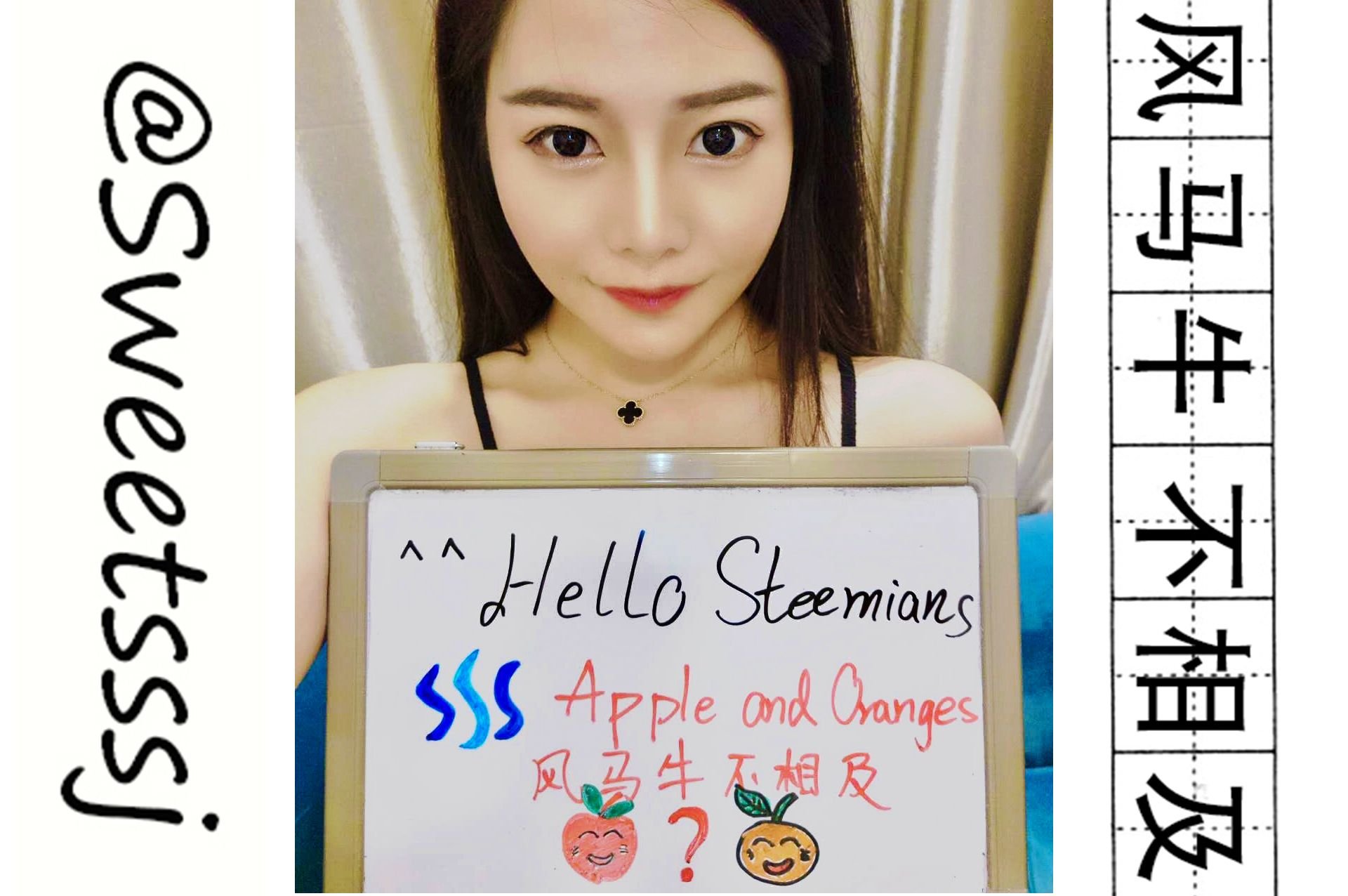
风马牛不相及 (feng ma niu bu xiang ji)
So what is the meaning of this idiom? A direct translation would be Wind, Horse, Cow , are not related, but in English, it would be comparable to Apples and Oranges, or Chalk and Cheese. In case you are still confused, it is often used to describe when two things are unrelated.
This is actually an ancient Chinese idiom which is still commonly used today when contrasting things unrelated to each other.
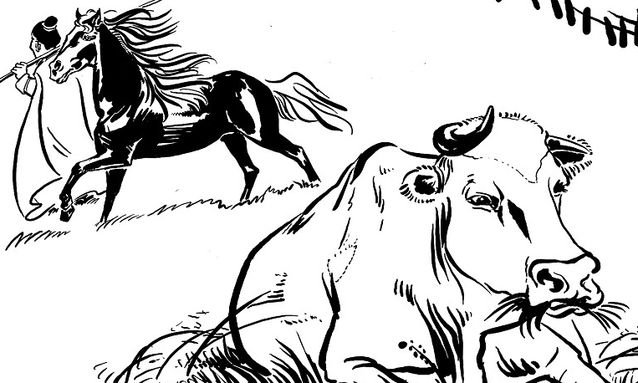
The origins of the idiom
Like with every Chinese idiom, it's origin comes from a story in ancient Chinese history.
During the Autumn Spring period, there existed the five Hegemons of the warring states. The Qi State was the strongest of the five and commanded respect over all the others. The Vassal state bowed to the might of the northern state of Qi, however, one state in the south - Chu, continued to amass their armies in their refusal to capitulate.
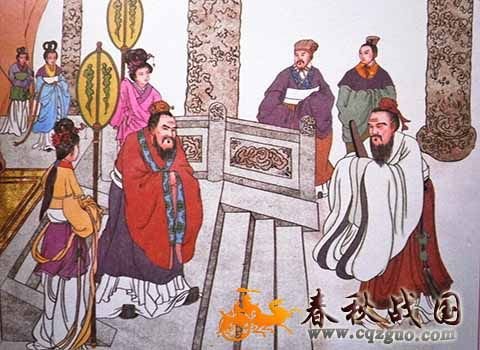
In 656 BC, the Qi State began preparations to wage war on the Chu. The Emperor of Chu learned of this intention and could not understand the motives of the Qi. In an attempt to understand the transgressions of the Qi, the Chu Emperor sent his most trusted senior official - Qu Wan to speak with the Qi Emperor. Qu Wan asked : With the state of Qi in the far north, and Chu in the far south, both, polar opposites in distance, a wandering cow or horse would have zero possibility of wandering into each other's territory and yet, here you are in the land of Chu, can you tell me why?
In response, the Qi Emperor recounts the numerous times the Chu have failed to offer tribute to the most powerful state that is Qi. He considered this an outright offence, spiting the great state of Qi and one that must be settled by force.

After the first talks between the Qi and Chu, no settlement could be reached and thus both armies prepared themselves for war. In a last ditch effort to avoid unnecessary conflict, the Chu Emperor once again sent his senior official - Qu Wan, to try persuade the Qi to withdraw.
On this second visit, the Qi Emperor took Qu Wan on a tour of the military strength of Qi - a scare tactic to try bend the Chu into submission. The Qi Emperor said : My army is vast and unparalleled in military strength, how can the Chu defeat my army?
Qu Wan replied : If one considers the size and strength of the army alone, you are indeed unmatched in strength, but the state of Chu is protected by the great wall which fortifies our lands, and protects our cities. Outside the wall, we also have a moat making it even more difficult for your army to attack us. You could have an army twice your current size and still fail to penetrate our defences.
The Qi Emperor observed the hard line presented by Qu Wan and realised that it would indeed be a difficult task to penetrate the wall without suffering significant losses. Moreover, the Chu empire had already repented for their lack of tributes to the Qi and promised to do so in the future. The Qi Emperor decided to withdraw knowing that face was not lost and the Chu from henceforth would offer tribute to the Kingdom of Qi.
This signalled the end of their conflict and how the idiom Wind, Horse, Cow are unrelated came into existence.
I found the story very interesting because when Qu Wan first used this analogy, it emphasised his reasoning and quick wit. Ultimately this led to the resolution of conflict without bloodshed. An example of unnecessary conflict over two unrelated things.
After hearing this story, you should now have a deeper understanding of the meaning of this idiom as well as it's origin.
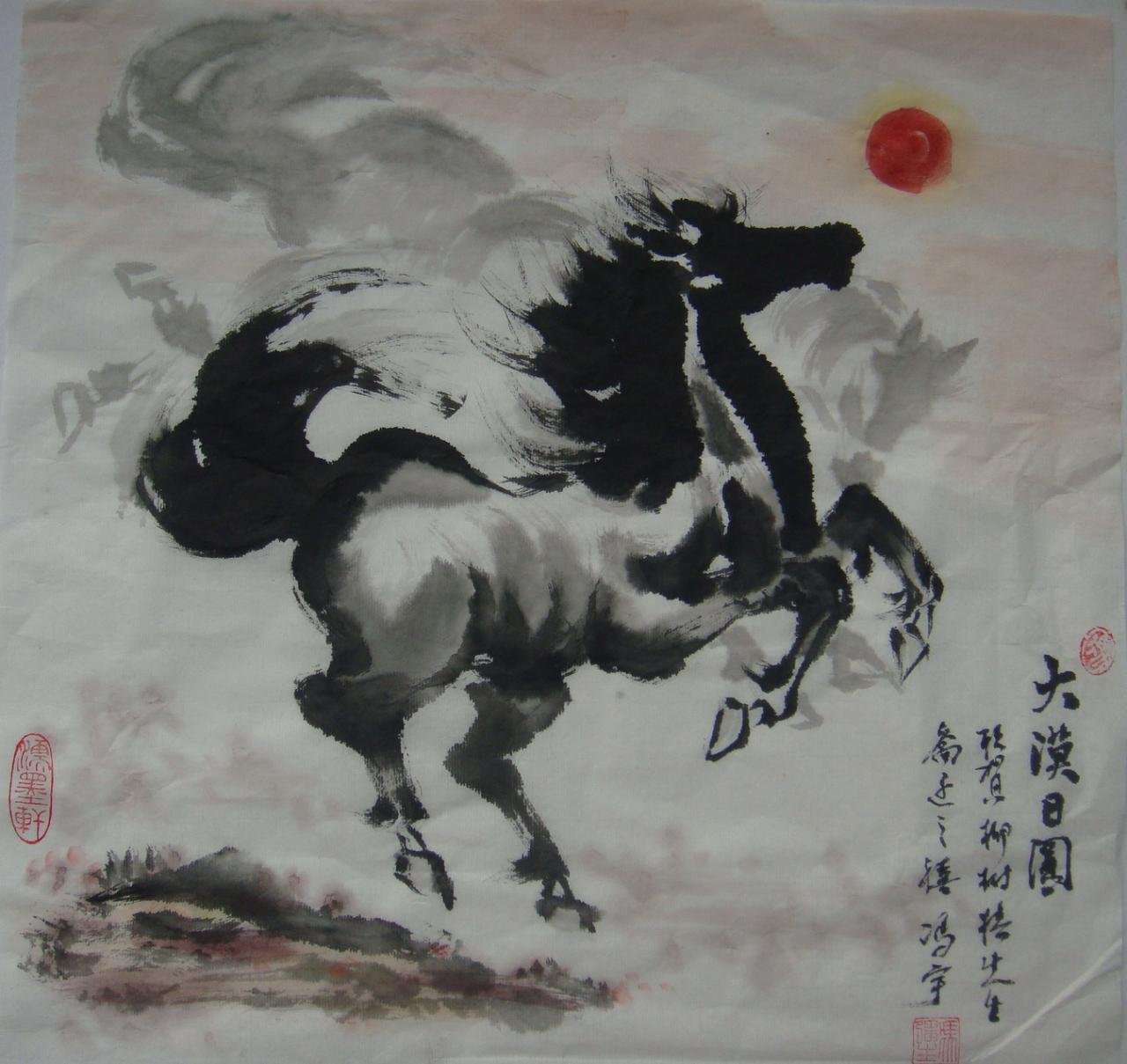
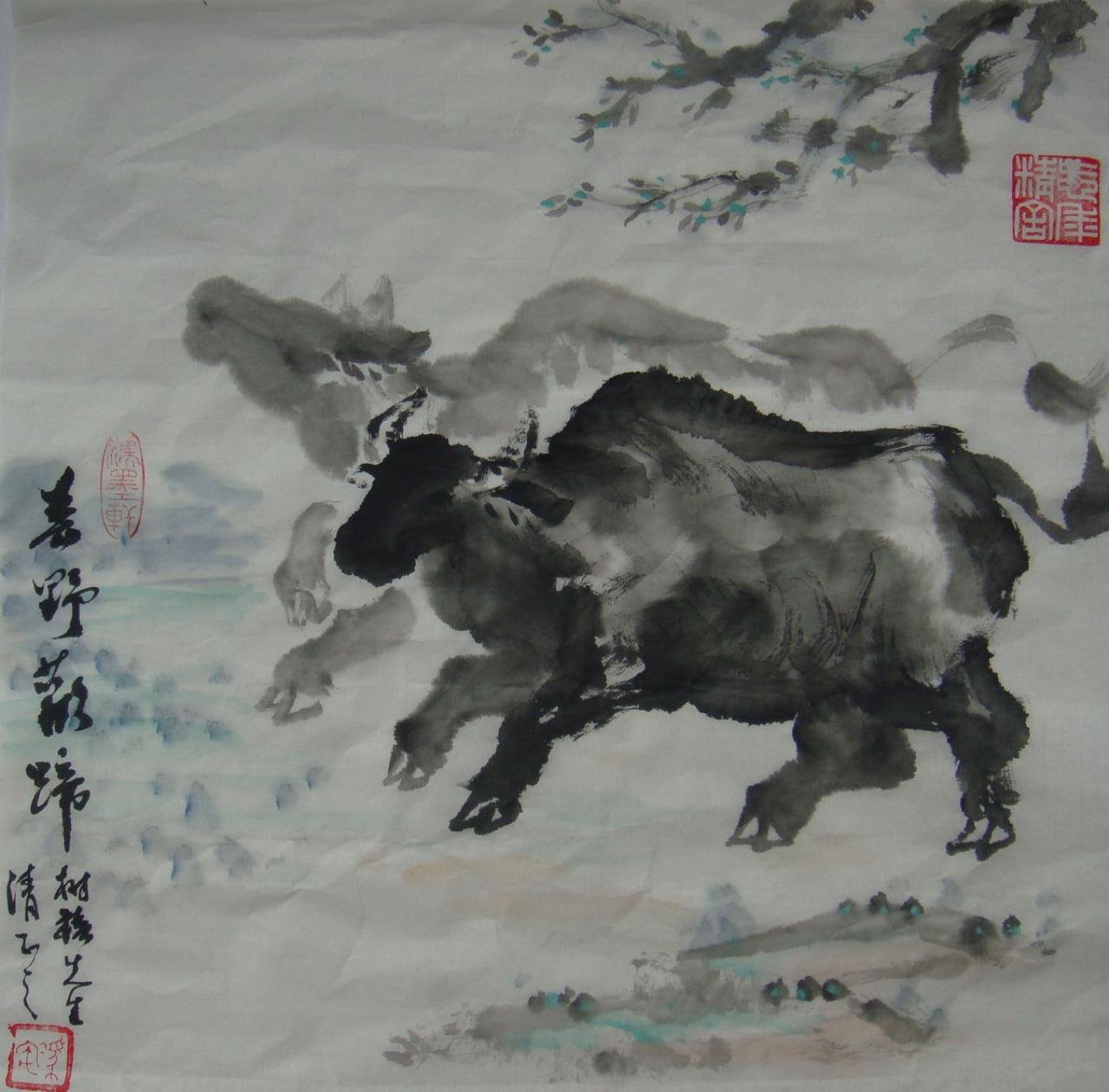
The different ways 风马牛不相及 (feng ma niu bu xiang ji) can be interpreted
Actually, there are quite a number of different ways people interpret this idiom. Let's have a look!
Wind, Horse and Cow are three different and unrelated things. Cows walk with the wind, and horses run against the wind. The Qi and Chu empires are in completely opposite directions. There is no inherent relationship or clash of interests, why the need to wage war?
The character “风” (Wind) was used as a verb in classical (ancient) Chinese, it's other meaning is to escape or wander. If a cow and horse escape and wander off, they still have no chance of ending up in each other's territory.
The sexual enticement between a male and female is also called “风”. The horse and cow are two different species, even during times of sexual receptivity, should a horse and cow stumble upon each other, there would still be no chance of mating.
This is an analogous to the Qi and Chu who have no reason to wage war on each other.
With regards to the idiom 风马牛不相及 (feng ma niu bu xiang ji) (Apple and Oranges | Chalk and Cheese), it illustrates situations where conflict arise with no basis of reasoning or logic. Next time you come across a situation with conflict of reasoning, you'll have a Chinese idiom to save the day!
I hope this edition of my world of idioms has given you a new perspective on situations where unnecessary conflict arises. It might be a bit weird to just say Apple and Oranges, but you can certainly say Wind, Horse, Cow unrelated to a Chinese person and they will get the message right away!
Hope you enjoyed the post, and don't forget to upvote, follow and comment!
Welcome to my world of Idioms #1—7
To put the cart before the horse
One man's meat is another man's poison
Diamond cuts diamonds
今天我想带大家继续走进我的成语世界,在上一篇文章中,我们了解了钻石切钻石,棋逢敌手的历史故事,发现了在做事情中,遇到实力相当的对手可以促进自己进步更快。今天我想带大家去探索一个更有意思的成语——风马牛不相及。
风马牛不相及:这个成语在英文里竟然是苹果和桔子的意思,为什么要把2个毫不相干的水果放在一起,莫名其妙呢?风马牛不相及是中国古代的成语,比喻两事物毫无关联。风马牛不相及的古代故事,故事背景:是春秋五霸之一,中原的诸侯国没有不屈从的,只有南方楚国不断扩充兵力,试图与齐国抗衡。公元前656年,齐国准备进攻楚国,楚王得知了消息,觉得他王完全是毫无道理的侵略,在集合大军准备迎战的同时,也派楚大夫屈完前去质问齐国说,你们齐国居住在很遥远的北方,我们楚国在南方,一南一北两个极端相距很远,即使是我们两国走丢的牛和马狂奔而去,也不可能跑到对方的境内,没想到你们竟然进入我们楚国的领地,这是为什么呢?而齐国则历数了楚国不向最强大的齐国进贡等罪状。
这次对话之后,并没有合解,两军都在建立军营筹备作战。这时候楚王再次派大夫屈完去劝说,齐王显示自己武力给屈完,屈完镇定的说,单凭武力,我们楚国以楚长城作城墙,汉水作濠沟,你们再多的兵力,也未必打得进来。齐王一听,屈完这般强硬,觉得自己确实也未必能轻易打败楚国,更而况楚国已经承认错误并承诺以后会进贡,齐王自己也算有了面子。就这样,齐楚两国终于和解。而风马牛不相及这个成语,就是从这场战争前的齐楚唇枪舌战中诞生的。这个故事我觉得非常有趣,屈完质问齐王时用这个成语作为比喻是非常生动有趣,又很机智和贴切的。了解了这个故事,你们是不是对风马牛不相及这个成语,理解更加深刻了呢?
风马牛不相及的多种理解:其实这个成语还有更有趣的地方,那就是人们对这个成语有着很多种不同的解释。1。风、马、牛是三种并列的事物,它们完全不相干。 牛走顺风,马走逆风,齐国和楚国本来是向不同方向走的,两者没有任何冲突,为什么会发生战争?2。 “风”在文言文里用作动词,意思是“放逸、走失”,马与牛即便走失,也不会到对方的境内。3。兽类雌雄相诱也叫做“风”,因马与牛不同类,所以不会交配,就算发情的牛和马也不会走到对方领地。强调两国没有任何关系,为何齐国要来进攻楚国。关于风马牛不相及的成语解释,充满了对莫名其妙事物的不理解。下次如果你们撞上了毫无缘由,莫名其妙的差错,也许这个成语可以派上用途了。希望你们希望我今天的成语介绍,之后还有更多有趣的成语小故事等着和大家分享。
